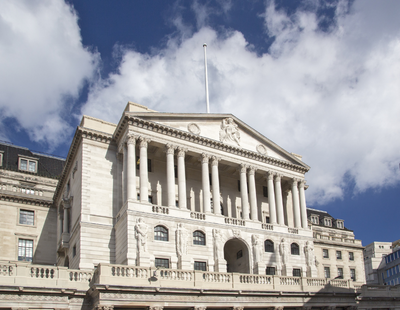
Tenants face potential rent increases of between 20 and 30 per cent as a result of tax rises hitting landlords, says a former independent member of the Bank of England’s Monetary Policy Committee.
David Miles, now Professor of Financial Economics at Imperial College London, says he wants the current three per cent stamp duty surcharge and the imminent start of the phased reduction of landlords’ mortgage interest tax relief to be abandoned.
Miles says “rents would need to rise between 20 and 30 per cent” to offset the impact of the government’s measures.
Addressing the argument made by the previous Chancellor that the tax changes are about making it easier for first time buyers to enter the market, Miles says that “aspiring first-time buyers are hardly helped by squeezing the supply of rental property and driving rents up.”
He concludes by warning that “It’s strange to believe that having households channel more of their savings into US government bonds or into equity issued by German companies is to be preferred to their investing in providing rented accommodation in the UK.”
Miles’s analysis is included in the latest comments by the Residential Landlords Association which claims a majority of landlords will be negatively impacted by the tax changes.
The RLA wants the government to use the unexpected extra revenue from its stamp duty levy to halt the implementation of the mortgage interest changes, or at least apply it only to new borrowing for new housing.














%20-%20IMAGE%20Client%20Accounting%20%E2%80%93%20what%20are%20your%20options.jpg)
%20(002).png)

.png)











Join the conversation
Jump to latest comment and add your reply
Why doesn't this all mean that being a buy to let Landlord will become 20% to 30% less profitable? There is after all a squeeze on yield in every activities Why should buy to let landlords be excluded? They have had it far too good for far too long.
Hi Mark. Some landlords will face infinite tax i.e. more tax than they eastern - would you advocate that. Every business can deduct finance costs from its income to arrive at a taxable profit - are you suggesting that shouldn't happen, or are you comfortable with discrimination? What do you mean by landlords have had it too good for far too long? How would you know the details of someone else's business?
Has anyone sent a copy of this to the newly self-appointed lobbyists to Government Shelter? Perhaps it may help convince them that their constant landlord and agent bashing propaganda is misplaced!
Rent prices and location are most important to tenants.
You would then think that Tenant lobby groups would be concerned about various govt. policy that are going to increase rents.
The Govts. recent housing white paper states that rents can be considered "affordable" if they are 20% below market value.
By driving up market rents by 30% the build to rent sector can provide "affordable housing" to tenants at rents that are higher than today's market rents.
This is very Machiaveillian.
The 20-30% increase put forward here seems a touch dramatic to say the least and is totally at odds with tenants budgets. Research conducted via YouGov late last year showed that almost half of renters CANNOT afford a 5% rent rise - let alone anything approaching the 20-30% put forward here.
In fact just 7% of tenants said they would be able to afford an increase of 20% or more.
There will have to be a little give and take and both landlords and tenants will have to suffer a little, but landlords must accept that they will have to take a hit on profit margins regardless.
Chris, mortgage tax relief at source, MIRAS, was removed by Nigel Lawson in 1988 to cool down the property market and remove the then tax subsidy which was in part exacerbating the housing price problem. Landlords are taking tax earned income as rent from their tenants and offsetting it gross against their mortgage debt. It is tax subsidized property speculation. What amazes me is how long it took government to deal with this anomaly. Also, to call a private landlord’s buy to let ‘a business’ is stretching the description. Where there is a high gearing it is a punt on growth with the safety net of tax relief. I understand why the sector is upset, but it makes total sense to me.
That makes no sense. All taxed income cycles through to became the 'turnover' of any businesses the taxpayer uses. It is neither gross profit or net profit.
There is no tax subsidy. The government are simply attacking an easy target. All in the housing sector know that the solution is easy and that's release land to the market so encourage building of new homes. Simple economics increase supply and costs of property and rent will come down.
Mark can u explain how buy to let isn't a business ??? Spend a week with me and you will change your mind. Also can u explain how it's is going to be ok for limited companies to off set mortgage costs but not individual landlords ? I have just incorporated I am one of the lucky ones and all I have changed is the fact I have ltd after my business how is this fair ??
The BTL business is soon going to be taxed on turnover rather than profit. Can you imagine if this was applied to other businesses?? How can this be fair. If all the landlords pulled out of the sector where would all the tenants go?? Badly thought through and will have a negative consequence on rents.
Please login to comment